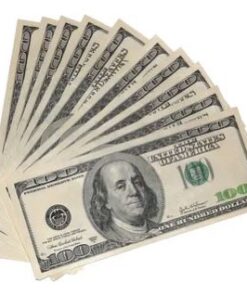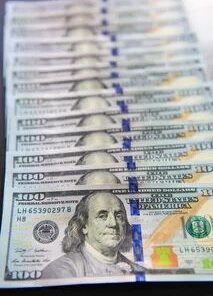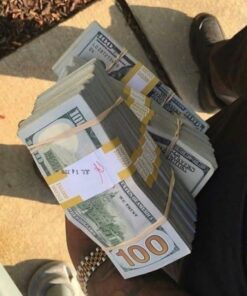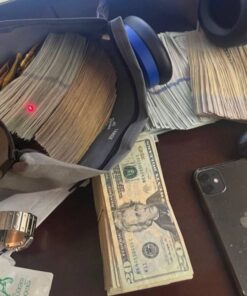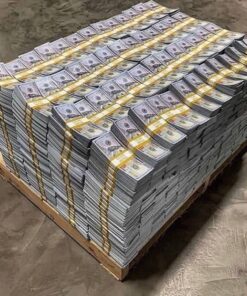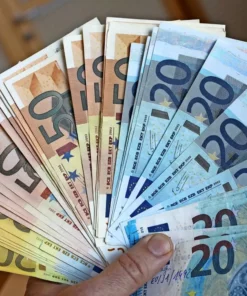buy counterfeit bills
$100.00 – $1,800.00
In today’s globalized world, the rise of counterfeit currency has become a concerning issue. The allure of buying counterfeit bills may seem tempting to some individuals seeking quick financial gains or looking to deceive others.
buy counterfeit bills The Dangers and Consequences of Buying Counterfeit Bills
buy counterfeit bills In today’s globalized world, the rise of counterfeit currency has become a concerning issue. The allure of buying counterfeit bills may seem tempting to some individuals seeking quick financial gains or looking to deceive others. However, it is crucial to understand the serious consequences and inherent risks associated with engaging in such illegal activities. This article aims to shed light on the dangers of purchasing counterfeit bills and the potential legal ramifications one may face.
The Illegality of Counterfeit Currency:
Counterfeit currency is a form of fraud that involves the production, distribution, or use of fake money with the intent to deceive. It is important to note that buying counterfeit bills is illegal in virtually every country. By engaging in such transactions, individuals become active participants in criminal activities, jeopardizing their personal integrity and potentially damaging their lives irreparably.
Legal Consequences when buying counterfeit bills
The legal consequences of buying counterfeit bills can be severe. Laws vary from country to country, but in most jurisdictions, the possession, distribution, or use of counterfeit money is considered a felony or a serious criminal offense. Offenders may face substantial fines, confiscation of assets, and imprisonment. The penalties can escalate depending on the scale of the operation, involvement in organized crime networks, or previous criminal history. The risk of legal consequences alone should be a strong deterrent against participating in the counterfeit currency market.
Economic Impact on counterfeit bills
The circulation of counterfeit bills poses a significant threat to the stability of economies. When counterfeit currency enters circulation, it erodes trust in the financial system and undermines the value of legitimate money. Individuals who unknowingly receive counterfeit bills suffer financial losses, and businesses may also be adversely affected. To combat this, central banks and law enforcement agencies invest significant resources in detecting and removing counterfeit currency from circulation, which ultimately burdens taxpayers. Buying counterfeit bills contributes to this vicious cycle, perpetuating economic instability and harming innocent individuals.
Personal Risks when dealing with counterfeit bills
Engaging in the counterfeit currency market also exposes individuals to personal risks and scams. Buyers often encounter untrustworthy sellers who may cheat them out of their money or provide counterfeit bills of poor quality. Moreover, participating in such activities may attract the attention of criminal organizations involved in counterfeiting, potentially leading to threats, extortion, or violence. The risks associated with purchasing counterfeit bills extend far beyond legal consequences and can severely impact one’s personal safety and well-being.
Ethical Considerations
Beyond the legal and personal risks, buying counterfeit bills raises ethical concerns. Counterfeit currency operations are often connected to organized crime, human trafficking, drug trade, and other illicit activities. By purchasing counterfeit bills, individuals inadvertently contribute to the proliferation of these criminal networks, supporting a cycle of violence, exploitation, and social harm. Ethical considerations should weigh heavily on one’s decision to engage in such illegal practices.
Conclusion when dealing with counterfeit bills
The allure of quick financial gain should never blind individuals to the dangers and consequences of buying counterfeit bills. Engaging in such activities is illegal, carries severe legal penalties, and undermines the stability of economies. The personal risks, scams, and ethical implications associated with counterfeit currency should serve as strong deterrents against participating in this illicit market. It is essential for individuals to make responsible and ethical choices, ensuring their own well-being, protecting the integrity of financial systems, and fostering a safer society for all.
| Units | 1000 Dollars, 5000 Dollars, 10, 000 Dollars, 20, 000 Dollars |
|---|
Related products
counterfeit money
counterfeit money
counterfeit money
counterfeit money
counterfeit money
counterfeit money
counterfeit money
counterfeit money




